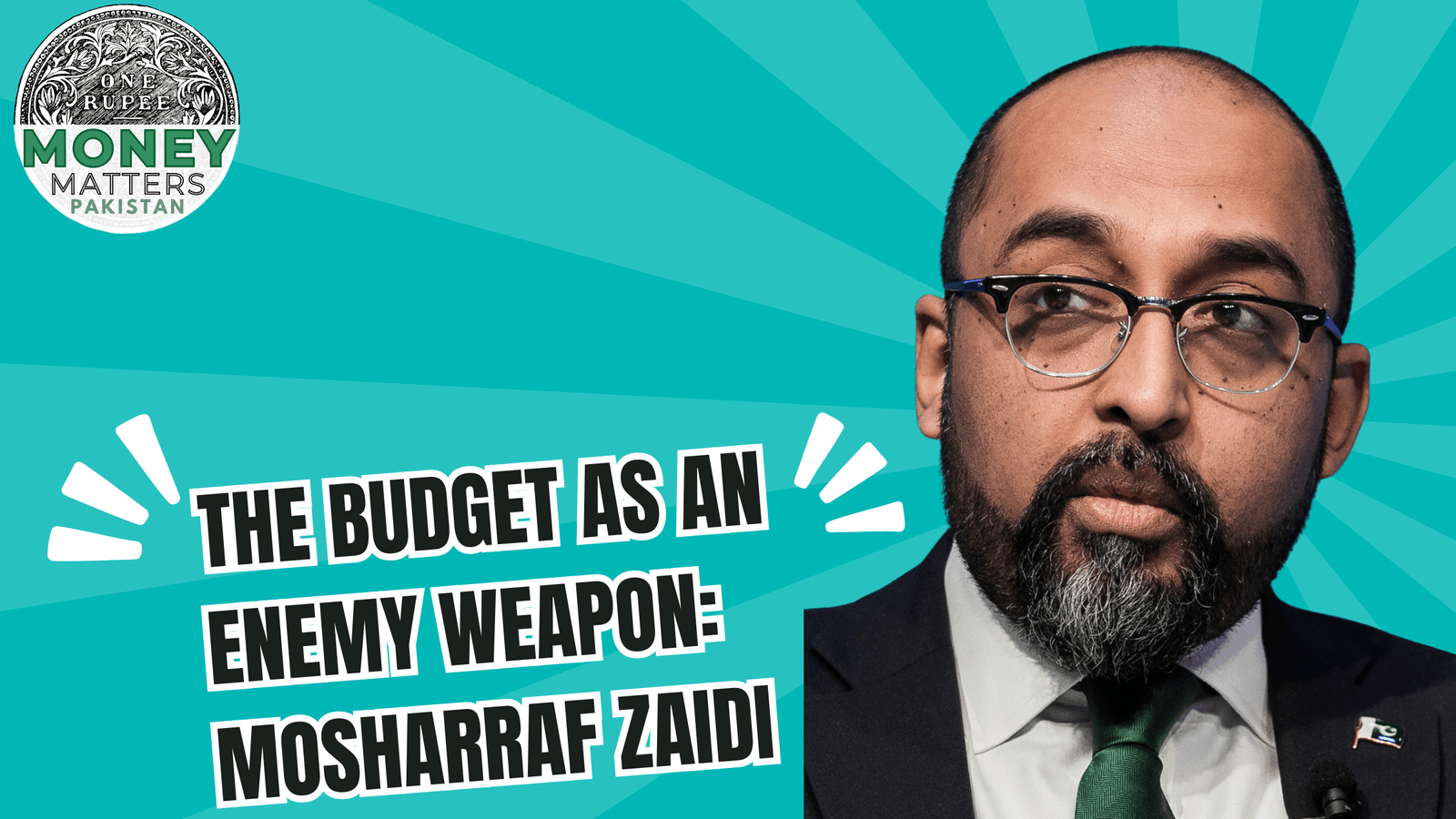Mosharraf Zaidi, an experienced analyst and commentator with over two decades of expertise, recently shared his insights on Pakistan’s economic challenges in an article titled “The Budget as an Enemy Weapon.” Zaidi articulates the grim reality of Pakistan’s financial state, drawing parallels between past and present economic crises and the impact on the country’s citizens.
Zaidi begins by referencing a 1993 article by Farhan Bokhari, highlighting that “Pakistanis are being forced to tighten their belts to make up for several years of irresponsible economic management.” This phrase, he notes, resonates with the current economic situation as much as it did three decades ago. The population has doubled since 1993, amplifying the collective distress caused by recurring financial mismanagement.
Reflecting on Pakistan’s historical context, Zaidi points out that in 1993, the nation was grappling with the aftermath of partition, geopolitical upheavals like the Iranian revolution, and the Soviet invasion of Afghanistan. Despite these challenges, the external debt was $24 billion. Today, it exceeds $126 billion, with the economic burden far more substantial due to increased population and debt.
Zaidi cites Bokhari’s 1993 article, which optimistically discussed IMF support for Pakistan’s economic reforms. However, he notes that these reforms did not have lasting effects, similar to the current situation. The caretaker government of 1993, despite its promises, could not deliver substantial economic changes, a fate that seems to be repeating.
Zaidi underscores the persistent failure of economic reforms by referencing a 1996 article in Asiaweek, which described a new economic reform package introduced by a World Bank vice-president. Despite such measures, the expected economic revival did not materialize, mirroring today’s scenario where “every sentence, about every supposed reform, has already been written.”
Highlighting the plight of the salaried class, Zaidi expresses concern over the “helplessness of knowing just how little control or agency” citizens have in changing their circumstances. He stresses that a disillusioned and disenfranchised populace poses a significant risk to stability, as “urban discontent among the most capable segment of the population… breeds the cancer of deeply held resentment.”
Zaidi warns that the growing disengagement of young Pakistanis from their country’s future is a more significant defeat than any external threat. This disengagement is exacerbated by populist movements and the failure of the political elite to address the real concerns of the people.
Furthermore, Zaidi observes the changing political dynamics, noting how traditional political figures like Maulana Fazlur Rehman are shifting their rhetoric to align with the prevailing public sentiment. This shift indicates a broader discontent that transcends ethnic and linguistic lines, particularly in regions like Khyber Pakhtunkhwa and Punjab, where local political realities differ significantly.
Addressing the current economic policies, Zaidi highlights the immediate financial pressures, such as rising petrol and diesel prices and impending increases in electricity tariffs. He notes that these burdens will disproportionately affect the salaried class, fueling further discontent and exacerbating existing economic and social pressures.
Zaidi also points out the differences between the 1990s and today, emphasizing the “triple threat” of demography, technology, and climate change, which compound economic weaknesses. He also underscores the geopolitical challenges Pakistan faces, surrounded by extremist regimes and global power contests, which further strain the country’s resources.
In conclusion, Zaidi asserts that the current budget, by alienating the salaried class and failing to implement genuine economic reforms, acts as a weapon that Pakistan’s enemies never paid for but will have lasting effects. This internal strife and economic mismanagement, he warns, undermine the nation’s long-term stability and security.
Link to original article: https://www.geo.tv/latest/552135-the-budget-as-an-enemy-weapon




